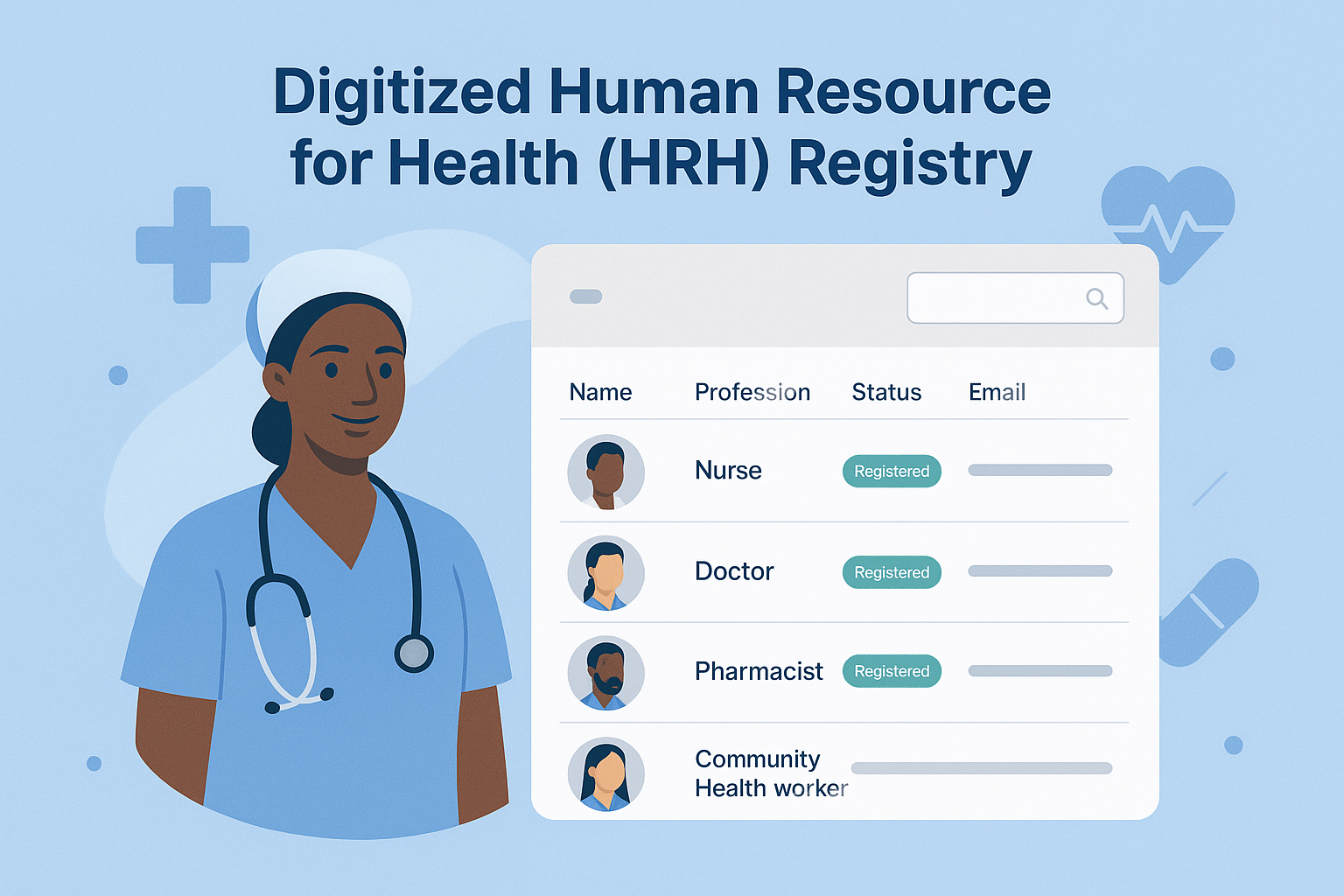Building a Stronger Health System: Why Kenya Needs a Digitized HRH Registry
The WHO recommends the establishment of a health workforce registry that has a minimum data set. The registry is essential for strengthening national health systems at all levels. The registry is also important in planning and forecasting for the health workforce. For instance, it allows the decision makers to know the number of healthcare workers in training, in employment, retirement among others. Literature has shown that establishing registries in countries has had positive outcomes, including improvement in the deployment of health workers.
The management of health workforce data in Kenya has been anchored in systems such as the National Health Workforce Accounts (NHWA) by the WHO and the Integrated Human Resource Information System (iHRIS). The council has been reporting data to the NHWA using data from county HR managers through payroll data. However, with the changing donor landscape in the country, there is need for a health workforce registry that is sustainable, digitized and allows for interoperability with other systems, both in the public and private sector.
The council is mandated to ensure a master register of all healthcare professionals; this means that the council is expected to have a database that has information of all HRH in the country, both at the national and county levels. Concerning this, the council is working together with other stakeholders including Strathmore University and the University of Nairobi to build a digitized AI-powered HRH prototype that will provide a comprehensive and up-to-date national database for all healthcare professionals. This will be pivotal in strengthening planning and governance of HRH for better decision-making to help avoid lapses like the erroneous internship posting of personnel who have not completed training.

